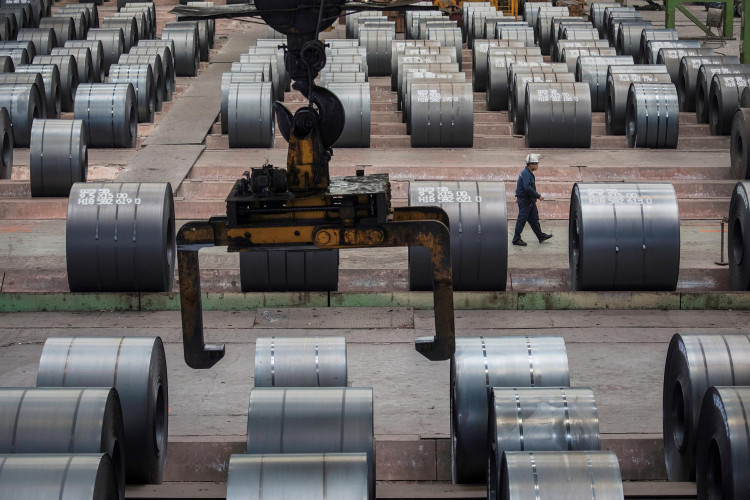In the government's efforts to revive its steel market, major Chinese companies rely on size and their connections to the bigwigs in the business.
Beijing expects its ten leading steel producers to reach 60 percent of their overall output by 2020 as they work towards improving efficiency, according to a proposal by the National Development and Reform Commission, which is responsible for macroeconomic planning in China.
The 10 major steel companies in the mainland recorded a cumulative production of 340 million tons last year, which is about 36.6 percent of the state's total national capacity.
"Government should promote company mergers and acquisitions to increase the speed of restructuring in the coming years," said Wei Yingsong, an analyst with Mysteel business consultancy.
Wei pointed out that economic policymakers have confidence in the size of their company because they think large steel producers will effectively help improve the industrial capacity of the nation in the sector.
Steel was once among the bedrock industries of China, propelled by major investment in infrastructure and real estate ventures between the early 1990s and 2015 in the midst of the country's breakneck economic growth.
But there was a huge glut in the steel industry as the mainland moved to a new growth model powered by demand and creativity.
Beijing started shutting down small and aging steel mills in 2016, most of which are state-owned enterprises, to reduce unnecessary production and emissions.
China says that it has done more than its share to curb steel production since China's international platform has been disbanded, decreasing excess capacity by about 150 million tons between 2016 and 2018. Smaller production has eased steel companies' rivalry and raised steel prices, raising earnings.
Already, Beijing is well on its way to creating the world's largest steel manufacturer since combining two state-owned behemoths as part of its goal of boosting the heavy industry's manufacturing output.
Shanghai-headquartered China Baowu Steel Group, the mainland's largest steel producer, is expected to produce 100 million tons of crude steel in the coming year or two after a 51-percent controlling stake in Magang Group Holding located in Anhui Province.
Baowu, formed in 2016 with the merger of Baosteel Group and Wuhan Iron & Steel, is now the second largest producer of crude steel in the world, behind only ArcelorMittal in Europe.
ArcelorMittal reported 92.6 million tons of steel fabrication last year. Baowu's steel production in 2018, since combining with Magang, peaked at 86.8 million tons.
The Shanghai-based steel producer had a plan to increase its annual output to 100 million tons by 2021 before taking the controlling stake in Magang. Consolidation into state ownership would make it easier for Beijing to keep regulating steel production.





